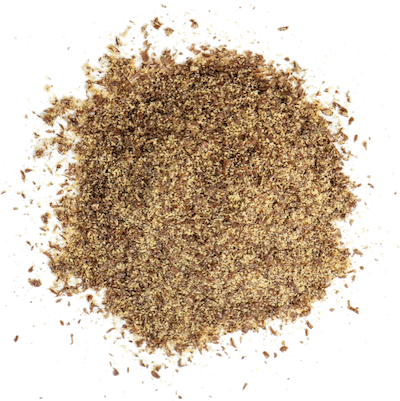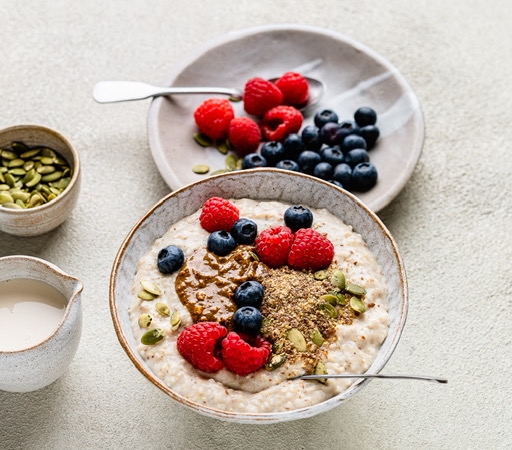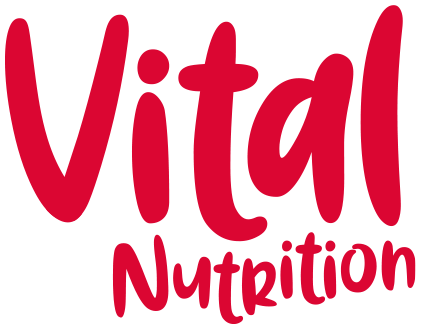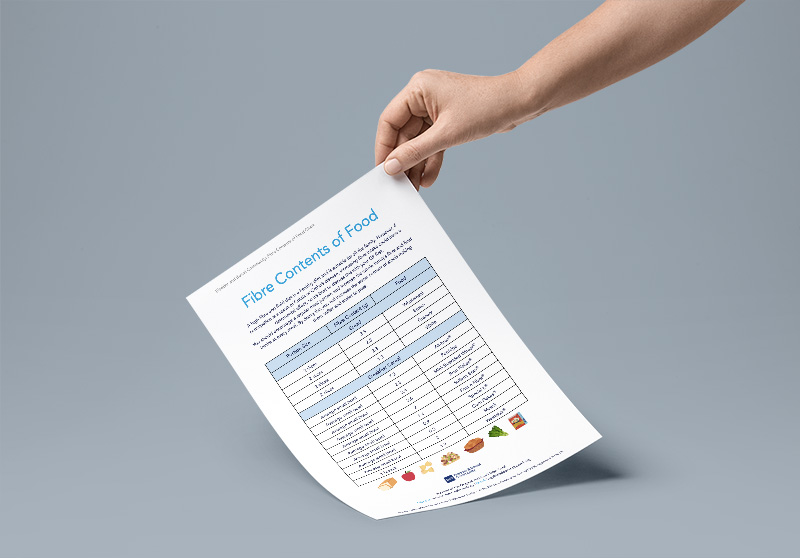AD This article is sponsored
Adding a daily dose of flaxseed to your diet could do wonders for your health. Flaxseed is packed with nutrition. It is an excellent source of fibre, the omega 3 fat ALA (alpha linolenic acid), minerals, protein and antioxidants.
Health benefits of flaxseed
Flaxseed has been well researched in recent years and has gained the reputation as a functional food, making it an essential ingredient for any health conscious consumer to add to their shopping list. The main benefits of flaxseed seem to be thanks to three key ingredients – omega 3 fats, antioxidants and dietary fibre.
Studies on flaxseed in the human diet identify its potential to support health in a number of areas, including:
- digestion and bowel health
- cardiovascular health
- type 2 diabetes
- female hormone balance
- cancer
- immunity
Take a look at the shelves in your local health food shop or supermarket and you will find flaxseed in lots of different forms. Flaxseed oil, whole flaxseeds and milled flaxseeds and as an ingredient in everything from protein shakes to breads.

You are likely to get the most health benefits from the milled form of flaxseed, as that way you can best absorb the omega 3 fats, fibre, minerals and antioxidants from the seed. Whole flaxseed cannot be digested, so you will miss out on the nutritional benefits. Likewise, flaxseed oil only provides the benefits of the omega 3 ALA, and you will miss out on the fibre and other nutrients contained within the seed itself.
Let’s take a look at the key ingredients that makes flaxseed so super.
Flaxseed fibre
Flaxseed has a balance of both soluble and insoluble fibre, each of which have health benefits.
Studies show that milled flaxseed may be a better choice than the ever popular psyllium as a laxative. It can effectively relieve constipation, but has also shown benefits to help with diarrhoea and symptoms of IBS.
Lignan is a type of fibre found in high amounts in flaxseed. This interesting ingredient has benefits for digestive health, female hormone balance, insulin sensitivity and cardiovascular health.
One study in people with type 2 diabetes and constipation found that milled flaxseed not only helps with the relief of constipation, but also reduces fasting blood glucose levels, triglycerides and cholesterol as well as helping with weight control.
Flaxseed may help support a healthy balance of bacteria in our gut microbiome. The soluble, mucilage fibre in flaxseed is thought to act as a prebiotic to change the abundance of these beneficial probiotic bacteria, which in turn has health benefits throughout the body.
Regular flaxseed consumption has been linked with reduced risk of breast cancer as well as supporting a protective effective for colon, prostate, gut and lung cancer. It is thought that this is because of the fibre content, alongside the omega 3 fats and probably the antioxidant effects too.
Fibre in the form of lignan found in flaxseed has phytoestrogen properties, which have a gentle hormone balancing effect on the body and are known to protect against menopausal symptoms, most notably hot flushes.
Although the research is limited, there are potential benefits of adding flaxseed to the diet for pelvic floor symptoms in postmenopausal women, including urinary incontinence. It is thought that this may be due in part to the phytoestrogen effects of flaxseed, however more research is required.
Omega 3 fats
Flaxseed is one of the richest plant sources of the omega 3 fat ALA in our diet. Omega 3 are essential fats that help to support a healthy cholesterol balance, have anti-inflammatory properties and reduce the risk of certain cancers. With more people turning to a plant based diet, flaxseed can be an important source of these omega 3 fats.
ALA has been shown to have health benefits for inflammatory conditions and cardiovascular health, but remember to use the milled form to get these benefits.
Antioxidant benefits
Back to our lovely lignans again. These polyphenols have antioxidant properties and are thought to protect cells against damage, which may be one of the reasons why they have been shown to have protective effects against certain types of cancer.
Lignans are associated with a reduced risk of incontinence symptoms in women and this is an area of ongoing research.
Polyphenols are also important for the healthy balance of our gut microbiome and for immune support.
It is impossible to highlight any one nutrient in flaxseed that is the key driver for its health properties. The nutrients work synergistically to provide us with a powerful punch of nourishment. It is no wonder that this small but mighty little seed is so popular.
How to use flaxseed in your diet
The milled form of the flaxseed will give you the most benefits.
Flaxseed has a tasty nutty flavour and is a versatile ingredient to have in your store cupboard. It can be baked into muffins, breads or flapjacks, added to soups and smoothies or sprinkled on top of cereals, soups or even your favourite curry!

Because of the high content of delicate omega 3 fats that are prone to oxidation, it is best to store your milled flaxseed in the fridge, although it can be used in baking without the essential fats being damaged.
Start slowly, especially if your digestion is delicate, and build your levels up to 1-2 tablespoons a day.
Here are some suggestions of how you can use it:
- add a spoonful to your porridge or overnight oats just before serving
- sprinkle on top of yoghurt with berries
- mix into chilli, curry, bolognese or sauces
- bake into breads, muffins or brownies
Article by Jane McClenaghan BScHons, DipION
BANT registered Nutritional Therapist and Food Scientist

Jane McClenaghan is Northern Ireland’s most recognised nutritionist with over 20 year’s experience. Her company Vital Nutrition allows her to share her knowledge in the subject area of health and wellbeing covering health and wellbeing topics such as mental health, stress, female and male health, healthy eating on a budget, heart health, sleep, family wellbeing and more.

Jane is also the author of two books on nutrition, she writes a weekly column in the Irish News, has a monthly slot on radio U105 and is a regular contributor to the BBC, The Belfast Telegraph and many other media outlets.
References
- https://pubmed.ncbi.nlm.nih.gov/22305169/
- https://www.ncbi.nlm.nih.gov/pmc/articles/PMC4375225/
- https://www.ncbi.nlm.nih.gov/pmc/articles/PMC6567199/
- https://www.ncbi.nlm.nih.gov/pmc/articles/PMC4152533/
- https://www.ncbi.nlm.nih.gov/pmc/articles/PMC2989356/
- https://pubmed.ncbi.nlm.nih.gov/26134388/
- https://www.ncbi.nlm.nih.gov/pmc/articles/PMC5920717/
Further Information
For more information about healthy living and following a diet that will support bladder and bowel health, you can find a number of helpful articles on this site, such as the Importance of Hydration which includes practical guidance for helping you to drink more throughout the day.
You can also find a chart below which details the fibre contents of food to help you make positive choices, however if you are going to make significant changes to your diet, consult a healthcare professional to make sure this is suitable for you.
Fibre Contents Of Food Chart
[BBC:018] Fibre Contents Of Food Chart
This help sheet provides you with the fibre content of basic foods to help you make healthier choices. If you’re not sure, check with your GP before changing your diet.

